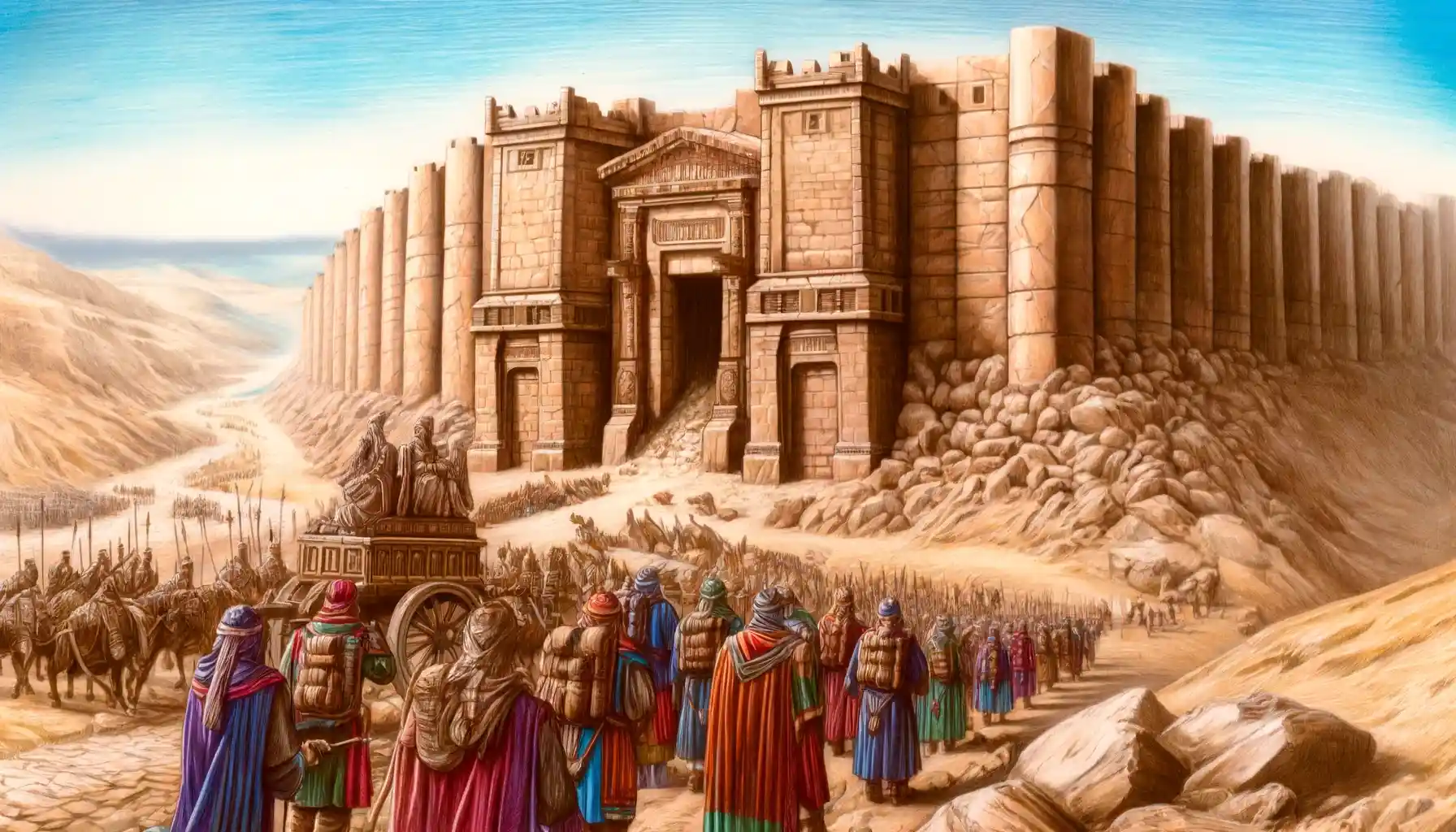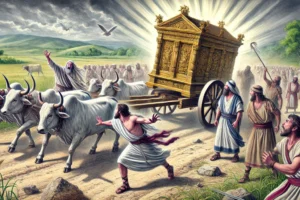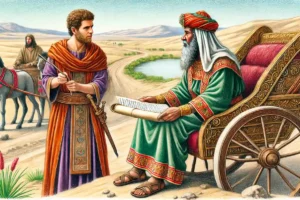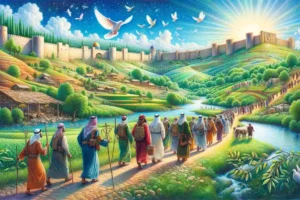
The Fall of Jericho
The Fall of Jericho is a pivotal event described in the Book of Joshua, marking a significant victory for the Israelites as they entered the Promised Land. This biblical narrative details the miraculous collapse of Jericho’s walls after the Israelites followed God’s specific instructions.
- Location and Time: Jericho was a fortified city located near the Jordan River, and the event is placed shortly after the Israelites crossed the Jordan into Canaan.
- Divine Strategy: God instructed Joshua to have the Israelites march around the city once a day for six days, with seven priests carrying trumpets of rams’ horns in front of the ark.
- The Seventh Day: On the seventh day, they circled Jericho seven times. The priests then blew their trumpets, and the people shouted, causing the city walls to collapse.
- Rahab’s Salvation: Rahab, a prostitute who hid Israelite spies sent by Joshua, and her family were spared as promised due to her faith and assistance.
- The Ban: Following the collapse, Joshua declared that everything in the city was to be devoted to God as an offering, except for the metals, which were to be taken into the treasury of the Lord.
- Curse on Rebuilders: Joshua pronounced a curse on anyone who would rebuild the city of Jericho, foretelling that they would do so at the cost of their firstborn and youngest son.
Contextual Background
The Fall of Jericho represents a critical juncture in the Israelites’ conquest of Canaan, embodying a direct fulfillment of God’s promises to Israel. Situated just west of the Jordan River, Jericho was a strategic and fortified city, often considered the gateway to conquering the land west of the Jordan. The narrative occurs after Israel’s miraculous crossing of the Jordan River, which set the stage for their conquest under Joshua’s leadership.
Theological Insights
- Divine Intervention and Faith: The siege of Jericho is unique because it involves direct divine intervention rather than conventional warfare tactics. The instructions for the Israelites to march silently around Jericho for seven days culminating in a shout underscore a test of obedience and faith in God’s power rather than human strength. The walls falling by God’s hand rather than by siege engines or armies emphasizes that the victory was divine, not military.
- Symbolism of the Number Seven: The number seven plays a prominent role (seven priests, seven trumpets, seven days, seven circuits on the final day), symbolizing completeness and divine perfection in the biblical context. This recurring use highlights the sacred nature of God’s instructions and the completion of his divine order.
- Rahab’s Covenant: Rahab’s story interwoven in the siege narrative highlights themes of salvation and grace. Her faith and actions in hiding the spies led to her being spared along with her family, symbolizing the broader biblical theme of redemption for Gentiles who put their faith in God. Rahab’s inclusion in the genealogy of Jesus Christ in the New Testament underscores this theme.
Historical and Cultural Implications
- The Ban (Herem): The total destruction of Jericho and the command that everything in the city be devoted to destruction (herem) can be troubling to contemporary readers but needs to be understood in its ancient Near Eastern context. This act was meant to signify the dedication of the first fruits of the conquest to God, suggesting a complete reliance on God for future victories rather than on plundered wealth.
- Archaeological Considerations: The historical accuracy of the biblical account has been a topic of debate among archaeologists. Some evidence suggests that Jericho was indeed destroyed around the time the Israelites would have entered Canaan, although there is ongoing debate about the exact timing and nature of its destruction.
Application and Relevance
The Fall of Jericho serves as a profound reminder of the power of faith and the importance of obedience to God’s commands. It challenges believers to consider how faith influences actions and to trust in divine guidance even when the path seems unclear or unconventional. The narrative also encourages reflection on the nature of God’s justice and mercy, particularly in how He provides for those who faithfully align with His will, as illustrated by Rahab’s story.
Conclusion
The Fall of Jericho is not just a story of an ancient city’s destruction but a rich narrative filled with lessons on divine power, faith, obedience, and redemption. Its study can provide believers with deeper insights into the character of God and the dynamics of faith that transcend the immediate historical context.



